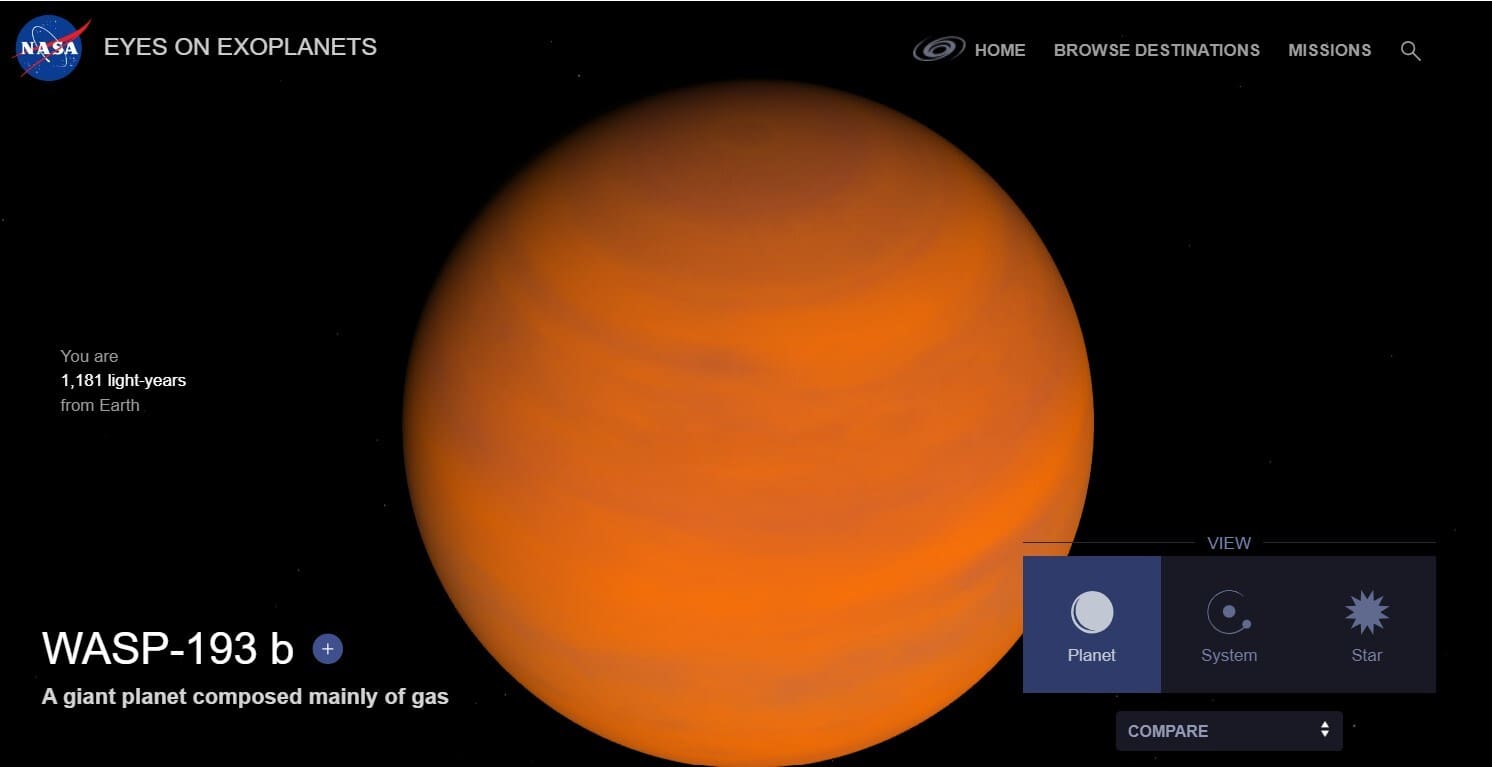Scientists have discovered a rare “super fluffy” planet, nicknamed the “cotton candy planet,” due to its extremely low density. This newly identified planet, WASP-193b, is located 1,200 light-years from Earth and is about 50 percent larger than Jupiter. Unlike Earth, which takes 365 days to orbit the Sun, WASP-193b completes an orbit around its star in just 6.25 days.
The planet’s incredibly low density has left scientists puzzled. It has a density of only 0.059 grams per cubic centimeter, making it the second least dense planet ever discovered. For comparison, Earth’s density is 5.51 grams per cubic centimeter, and Jupiter’s is 1.33 grams per cubic centimeter. The planet’s composition is believed to be primarily hydrogen and helium, similar to other gas giants in the galaxy.
NASA
WASP-193b was discovered by an international team led by researchers from the EXOTIC Laboratory at the University of Liège. Dr. Khalid Barkaoui, the lead author of the study, described the planet as a real anomaly among the more than 5,000 exoplanets discovered to date. He emphasized that its low density cannot be explained by current models of irradiated gas giants.
Julien de Wit, a co-author of the study and a professor at the Massachusetts Institute of Technology, noted that the planet’s low density is difficult to compare to any known solid material. Despite its cotton candy-like density, the planet is not made of such a substance; it is simply the best analogy scientists have.
The discovery has raised numerous questions about the planet’s structure and formation. Francisco Pozuelos, an astronomer at the Institute of Astrophysics of Andalusia, admitted that scientists currently cannot explain the planet’s structure or formation but hope to gain more insights by studying its atmospheric composition.
The unique characteristics of WASP-193b, including its rapid orbit and extremely low density, make it a cosmic mystery. Scientists are eager to learn more about this unusual planet, which continues to intrigue and challenge their understanding of planetary science.


